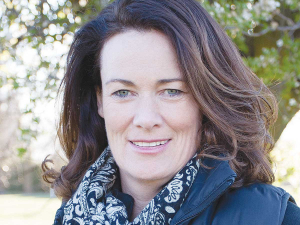Watermetrics appoints new sales engineer
Water data service provider Watermetrics has appointed Lee Hart as its sales engineer for lower Southland.
 Amanda Bell says the RMPP Action Network model supports farm businesses to work together in groups, to explore ideas and share expert resources to help make positive changes on-farm.
Amanda Bell says the RMPP Action Network model supports farm businesses to work together in groups, to explore ideas and share expert resources to help make positive changes on-farm.
Challenges facing the rural sector reinforce the need to work together and ensure linkages are strong and smart, according to Dr Amanda Bell.
Chair of the Deer Industry Primary Growth Partnership Passion2Profit (P2P) and founding member and chair of the Water Action Initiative (WAI) Wanaka, Amanda Bell, explains why farmers must maximise the learning of recent years and the investments in Primary Growth Partnership Programmes (PGPs).
This need to connect is amplified with the addition of significant funding streams for job creation and economic stimulus through environmental work programmes.
Social science learnings have increased through several PGP programmes and can add significant value to the next round of investments. We need to ask, how do we share more widely, the capacity and capability successful programmes have built?
This means providing support and funding for connectivity on a larger scale.
Having worked with the Red Meat Profit Partnership (RMPP) to establish a whole-of-catchment set of WAI Action Groups for the Upper Clutha Basin, I see excellent work being done to connect farmers.
We also need to see funding to support connectors, to connect vertically and horizontally between farmers and between existing and new programmes. Where we see capability and capacity built, we must leverage that through connection, outside of farm gates and catchments.
This will allow us to realise the true benefits of investments that have been made and are about to be made by government and by farmers.
WAI Wanaka and the five RMPP Action Groups in the Upper Clutha basin are good examples of how connectivity can be achieved and learning and change effected on a smaller scale. Upper Clutha Water Group, now WAI Wanaka, was launched in 2017 because a lot was happening around water management regionally, but little was connected, resulting in gaps and double-ups.
With Ministry for the Environment Freshwater Improvement Fund support, we’ve progressed as a community with our strategic plan and major work streams – riparian planting, applied urban research and a community catchment plan for the whole region.
The P2P Advance Parties and the RMPP Action Network model support farm businesses to work together in groups, to explore ideas and share expert resources to help make positive changes on-farm. With RMPP Action Networks, funding of $4,000 per farm business was pooled to fund facilitation and expertise. The model works very well to improve learning and speed of change among group members. Alongside expert input, sharing of experience between farmers adds great value.
Through the Passion 2 Profit programme and Action Networks, I’ve seen how critical the support, leadership, structure and solid social science that sits behind a framework is to the success of programmes. That framework is essential to enable you to fine-tune and be flexible as you move through. We found the RMPP Action Network team to be very supportive and agile in helping to get groups up and moving very quickly. Along with an existing Lake Wanaka group, we now have 55-60 farms involved in the Upper Clutha.
Having that framework and facilitation enables you to move faster, it enables better connections to be made and people will come on board, because they see where you’re heading.
Each of our groups has three goals: To create a whole-of-catchment environmental plan with goals nuanced to their particular areas; to have individual environmental plans for each farm business; and to engage in communication with rural communities, tourism bodies and urban neighbours.
Groups are creating plans and statement of intents that go beyond any expectations set out by government, nationally or regionally.
Through identifying opportunities to structure learning and provide supportive environments for farmers, we are also seeing work that can be made available to all farmers in our groups and potentially far wider.
GHG emissions workshops led by a global carbon accounting expert are supporting groups to put mitigation plans in place.
Farmers need to have these plans by 2025 so this is footwork that will enable this.
Through strong and smart and collaboration, we need to link the Fit For A Better World vision, develop a national food strategy and roll it out using the knowledge on the ground. Connecting this vision with Action Groups that implement allows us to leverage our primary sector investments.
We’re got the vision, we’re got the groups on the ground, all that is need is to mandate a light-footed group to drive the connections.
• Dr Amanda Bell is also a vet, farms deer and sheep, operates agri-tourism at Criffel Station in Wanaka.
New Zealand's new Special Agricultural Trade Envoy, Horowhenua dairy farmer, company director and former Minister of Agriculture, Nathan Guy says the Free Trade Agreement (FTA) with India is a good deal for the country.
New figures show dairy farmers are not only holding on to their international workforce, but are also supporting those staff to step into higher-skilled roles on farm.
New tractor deliveries for 2025 jumped 10% compared to the previous year, a reflection of the positive primary sector outlook, according to the Tractor and Machinery Association (TAMA).
Entries have opened for two awards in the New Zealand Dairy Industry Awards (NZDIA) programme, aimed at helping young farmers progress to farm ownership.
Federated Farmers has confirmed interim chief executive Mike Siermans to the role.
Registrations are now open for the 2026 Ruralco Golf Classic, with all proceeds from the event set to support the Mid Canterbury Rural Support Trust.